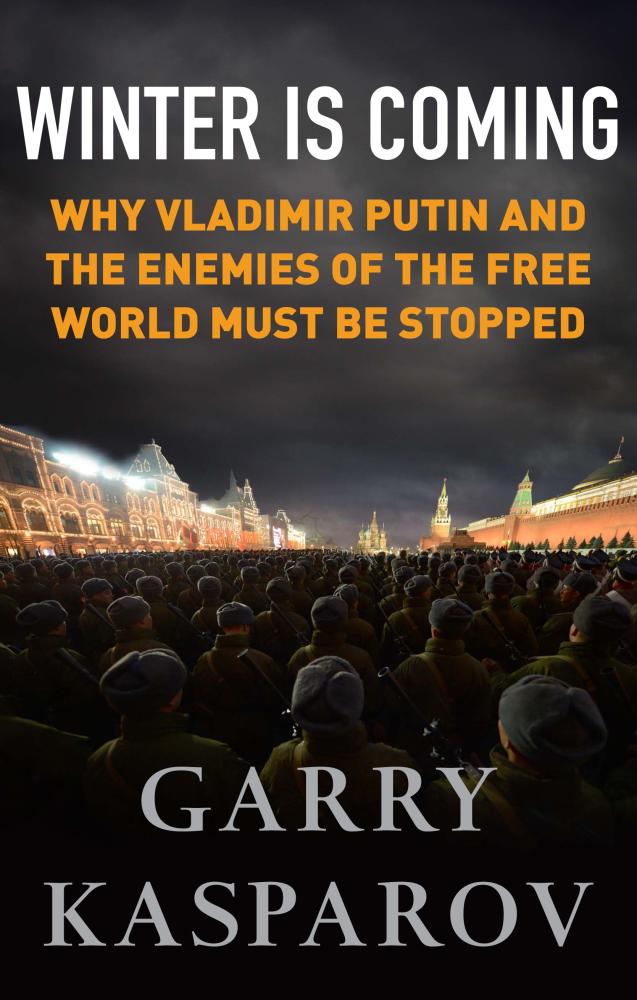Garry Kasparov spent twenty years as one of the world’s most luminously intelligent chess players. In 2005, he retired from professional chess to lead the pro-democracy opposition against Vladimir Putin, and ran for the presidency of Russia in 2008. In 2012, he was named Chairman of the Human Rights Foundation, succeeding Vaclav Havel. He has been a contributing editor to the Wall Street Journal since 1991, and his 2007 book, How Life Imitates Chess has been published in twenty-six languages. He lives in self- imposed exile in New York with his wife, Dasha. In this bold and important book, Garry Kasparov argues that Vladimir Putin’s dangerous global ambitions have been ignored for too long – and he won’t be stopped unless the West stands up to him. Garry Kasparov has been a vocal critic of Putin for over a decade, even leading the pro-democracy opposition in the 2008 Presidential election. Yet years of seeing his Cassandra-like prophecies about Putin’s intentions fulfilled have left Kasparov with the realization of a darker truth: Putin’s Russia, like ISIS or Al Qaeda, defines itself in opposition to the free countries of the world.
Kasparov now urges a forceful stand – diplomatic and economic -against him. For as long as the world’s powerful democracies continue to recognize and negotiate with Putin, he can maintain credibility in his home country.
Argued with the force of Kasparov’s world-class intelligence, conviction and hopes for his home country, Winter is Coming is an unmistakable call to action.
One of Britain’s foremost experts on Russia Edward Lucas wrote: “Vladimir Putin’s foes are either dead, jailed, cowed into silence or — in the case of Garry Kasparov — in exile. That is bad enough. Even worse is that those who could stand up to the Kremlin fail to do so. The main target of this brave, trenchant and convincing book is not the thuggish and dangerous regime that misrules Russia, but the cowardly wishful thinking in the West that refuses to stop it.
Garry Kasparov’s new book on Putin and the West, “Winter is coming,” deserves attention from anyone interested in the survival of the free world. It is a depressing read.
The former world chess champion chronicles the mistakes made by Russia in the 1990s, and its descent into autocracy and aggression under Vladimir Putin. But his main target is the West. Having won the Cold War, it failed to press home its advantage. Instead it succumbed to greed, followed by cowardice and wishful thinking. It ignored corruption and lawlessness under Boris Yeltsin, which was bound to disillusion Russians with democracy and capitalism. Another tocsin from that era was the return of hawks such as Yevgeny Primakov in intelligence and foreign policy.
Much worse followed as Putin rose to power: the phoney “terrorist” attacks in Moscow in 1999; the closure of the oligarch-owned independent media; the evisceration of Yukos, the harassment of the opposition; xenophobic rhetoric; the attacks on Estonia in 2007 and Georgia in 2008—all these in retrospect were clear signs of Russia’s trajectory.
But Western policy-makers and Russia-watchers mostly missed the significance of these. They tended to frame their analysis in terms of what the Kremlin would never do, rather than looking at the significance of what was actually happening.
Those mistakes are continuing. The West has now brought Russia to the negotiating table as a partner in solving the Syrian civil war—a hellish bloodbath which the Kremlin and its allies in the Assad regime created in the first place. The right response to the Syrian crisis would have been to put pressure on Russia in early 2011 to put pressure on its allies in Damascus. If the Assad regime had talked to the moderate opposition before blood was shed, the jihadists would have never gained a toehold. The West could have made Russia cooperate by threatening the Kremlin with what it really fears: investigation of its use and abuse of the international financial system.
But treating Putin’s Russia as a rogue state would be bad for business, so the West doesn’t do that. This weakness of will is compounded by a fundamental misunderstanding about the nature of international relations. The West regards peace as normal and desirable, whereas the Putin regime finds peace constraining: in peacetime, people ask awkward questions. Emergency conditions are much better for shutting people up.



